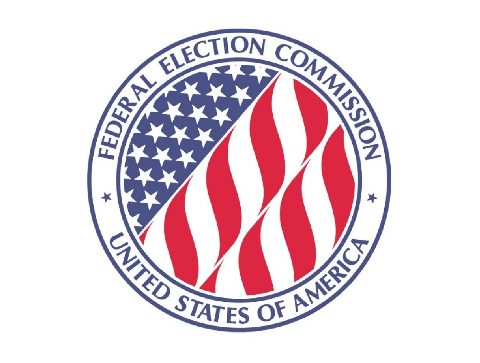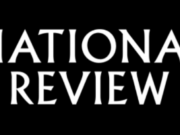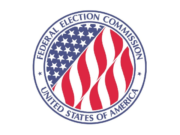RE: Advisory Opinion Request 2022-12 (Ready for Ron)
Dear Commissioners:
The Institute for Free Speech[1] submits this comment in support of Draft B in response to Advisory Opinion Request 2022-12 (Ready for Ron, “R4R”). Draft B correctly recognizes that there can be no “contribution” if there is no candidate for federal office. If an individual is not a candidate and is not even “testing the waters” to become a candidate for federal office, the Federal Election Commission has no authority to regulate his/her conduct or that of organizations urging that person to become a federal candidate.
I. The Conduct is Not Subject to the Contribution Limits of 52 U.S.C. § 30116
The Act prohibits contributions exceeding $2900 made, “to any candidate and his authorized political committees with respect to any election for Federal office.” 52 U.S.C. § 30116(a)(1)(A); see also 11 C.F.R. § 110.1(b)(1) (“to any candidate, his or her authorized political committees or agents with respect to any election for Federal office”). As Governor DeSantis is not a candidate for federal office and no contribution is being made to any authorized political committee (because he is not a candidate, Governor DeSantis has no authorized federal committee), the activities of R4R are, by plain definition, not subject to the contribution limits of the Act.[2]
II. Quid Pro Quo Corruption Requires a Candidate or Officeholder
This straightforward reading of the statute’s plain language is the only reading congruent with Supreme Court precedent. The “Court has recognized only one permissible ground for restricting political speech: the prevention of ‘quid pro quo’ corruption or its appearance.” Federal Election Commission v. Cruz, 142 S. Ct. 1638, 1652(2022). In order for there to be quid pro quo corruption or the appearance thereof, there has to be a current officeholder or candidate. See Buckley, 424 U.S. 1, 26 (1976). (“To the extent that large contributions are given to secure political a quid pro quo from current and potential office holders, the integrity of our system of representative democracy is undermined.”). If there is no candidate or officeholder, there is no potential quid pro quo.[3]
III. Vagueness Concerns Preclude Applying the Term “Contribution” to Include Conduct that Does not Relate to Candidates for Federal Office
This approach is further confirmed by the Court’s approach to the definition of “contribution.” Under the Federal Election Campaign Act of 1971, as amended (“FECA” or the “Act”), the term “contribution” is limited to the provision of money, goods, or services “for the purpose of influencing any election for Federal office.” 52 U.S.C. § 30101(8)(A)(i). As the Court noted in Buckley v. Valeo, 424 U.S. at 77, “[i]t is the ambiguity of this phrase that poses constitutional problems.”
To alleviate these concerns, the Court adopted a limiting construction that sought to tie the definition of “contribution” to a candidate or his/her committee. Specifically, the Court limited the definition of “contribution” to “contributions made directly or indirectly to a candidate, political party, or campaign committee, and contributions made to other organizations or individuals but earmarked for political purposes,” as well as “expenditures placed in cooperation with or with the consent of a candidate, his agents, or an authorized committee of the candidate.” Buckley, 424 U.S. at 78. In all of these circumstances, there must be a close connection to a candidate for federal office, either by providing money to a candidate directly or providing funds to another organization that expressly advocates the election or defeat of a candidate for federal office. That is simply not present here.
IV. An Alternative Approach Leads to Absurd Results
Disregarding these important structural limitations could quickly lead to absurd results. For example, invitations to state officeholders and other prominent individuals seen (by whom and by how many?) as potential future candidates for federal office would be open to litigation—was the purpose to encourage the person to run? Suppose the host notes that “many people here would like to see you in Congress”? Similarly, there are a plethora of scholarship programs dedicated to supporting “future leaders” at an early stage in their careers. If their sponsors have a subjective desire that scholarship recipients will one day run for federal office, would that convert these payments into prohibited contributions? What if a public official hires a staffer with the intention of mentoring him/her to be the official’s successor? These hypotheticals may seem and are absurd, however, there is little principled distinction between these scenarios and providing resources to other individuals who are not yet even testing the waters for federal candidacy.
Further, the legality of political activities by American citizens would turn on future actions by a third party over which they would lack control. In this instance, for example, if Governor DeSantis chooses not to run, the activities of R4R would be legal. But if R4R engages in the activities and, later, Governor DeSantis does choose to run, the activities become illegal. The possibility that a person may become a candidate at a later date simply cannot be used to retroactively turn legal activity protected under the core of the First Amendment into illegal activity.
V. Conclusion
Draft B is the only draft that recognizes that, under the plain language of the statute and the Supreme Court’s First Amendment jurisprudence, the Federal Election Commission cannot prohibit or regulate the proposed activities to encourage Ron DeSantis to run for president while he is not a federal candidate or testing the waters.
“Because First Amendment freedoms need breathing space to survive, government may regulate in the area only with narrow specificity.” NAACP v. Button, 371 U.S. 415, 433 (1963). By not recognizing that the Federal Election Commission lacks jurisdiction to prohibit transactions that do not concern either a federal candidate or an individual testing the waters to become a federal candidate, Draft A fails to “regulate with narrow specificity” and, if adopted, would raise serious constitutional doubts.
Respectfully submitted,
Gary M. Lawkowski
Senior Fellow
[1] The Institute for Free Speech is a nonpartisan, nonprofit 501(c)(3) organization that promotes and defends the First Amendment rights to freely speak, assemble, publish, and petition the government.
[2] Treating them as contributions would also create an absurdity in that a “contribution” must be deposited in an authorized account within 10 days of receipt, 11 C.F.R. § 103.3 (a), but Governor DeSantis would not have such an account, since he is not a candidate for federal office. Nor would he have any obligation to keep track of the contributions if he is not “testing the waters.” See 11 C.F.R. § 100.72(a).
[3] Governor DeSantis’s status as a state candidate or officeholder is immaterial since the Federal Election Commission generally lacks authority to regulate state campaigns.














